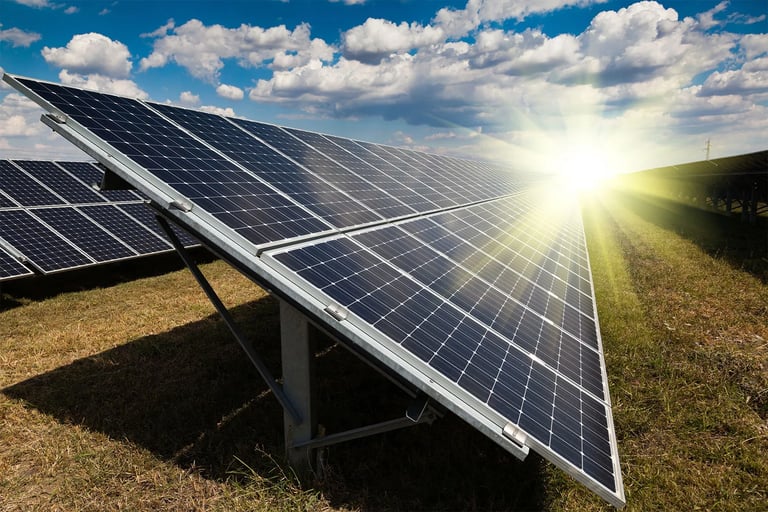Solar Energy
ENVIRONMENTAL ISSUES
Danny Xu
6/19/20253 min read


As the world continues to industrialize and progress in technology, requiring energy to support these projects, people have usually defaulted to utilizing nonrenewable energy sources such as fossil fuels like coal and burning them to produce energy. However, using these nonrenewable sources of energy requires burning them which produces many harmful gasses and greenhouse gasses into the atmosphere like carbon dioxide, sulfur dioxide and nitrogen oxide which significantly increases the rate of climate change and can result in natural disasters like acid rain and air pollution.
Additionally, as the name suggests, nonrenewable sources take millions and millions of years to generate but people are using them rapidly which does not allow them to regenerate and once they are gone, people run out of a energy source to use.
Therefore, people have realized that solar energy is a better source of energy as it is endless and friendlier to the environment and people.
What is Solar Energy?
People may view the sun as just an object in the sky that provides warmth, brightness, and can't be looked at directly. However, the rays of light and heat that the sun provides the Earth is actually how solar energy is produced. Solar energy is created by using a process known as nuclear fusion and using objects like solar panels to capture the heat of the sun to convert it into electricity or directly heat of buildings and water.
Reducing Greenhouse Gas Emissions
As stated in the introduction, the old method of burning fossil fuels to produce electricity and energy released many harmful gasses into the atmosphere, some being greenhouse gasses that are easily trapped in the Earth's atmosphere, acting like a blanket over the Earth and trapping all the sun's heat, raising the Earth's temperature.
On the other hand, the process solar energy does not release unhealthy byproducts making it much safer and essential for reducing the effects of a world ending phenomenon.
Reducing Air Pollution
Again said in the intro, the burning of fossil fuels produces many harmful gasses that can lead to health issues for humans. Similarly to greenhouse gasses, solar energy does not produce these harmful gasses in it's process which significantly improves air quality and safety for all. Without the safety for not only humans but for all organisms and ecosystems, certain species that are endangered should not have to also worry about if the air they are breathing is safe or not. Extinction of harm in animals disrupts the food chains and destroy habitats which in time, will affect humans and the overall wellbeing of Earth. This again, makes the transition to using solar energy key to protecting Earth's environment.
Acquiring Fossil Fuels
Fossil fuels used for energy like coal and oil have to be mined for which have detrimental impacts on the environment. Mining destroys a lot of biodiversity in the process as people need to destroy areas of habit to create space to start mining. Some animals may never find another home or have trouble adapting. Trees and other plants are commonly destroyed when clearing space and plants are critical for trapping greenhouse gasses and producing clean oxygen for living organisms to breathe. For solar panels, there is less of a need to destroy so many habitats as they can be installed on the roofs of some homes and don't require as large of an area.
In short, using solar energy is an effective transition from acquiring energy from burning fossil fuels that is environmentally friendly and is less limited. Solar energy should be further promoted as the path to a greener Earth and happier life for all.


